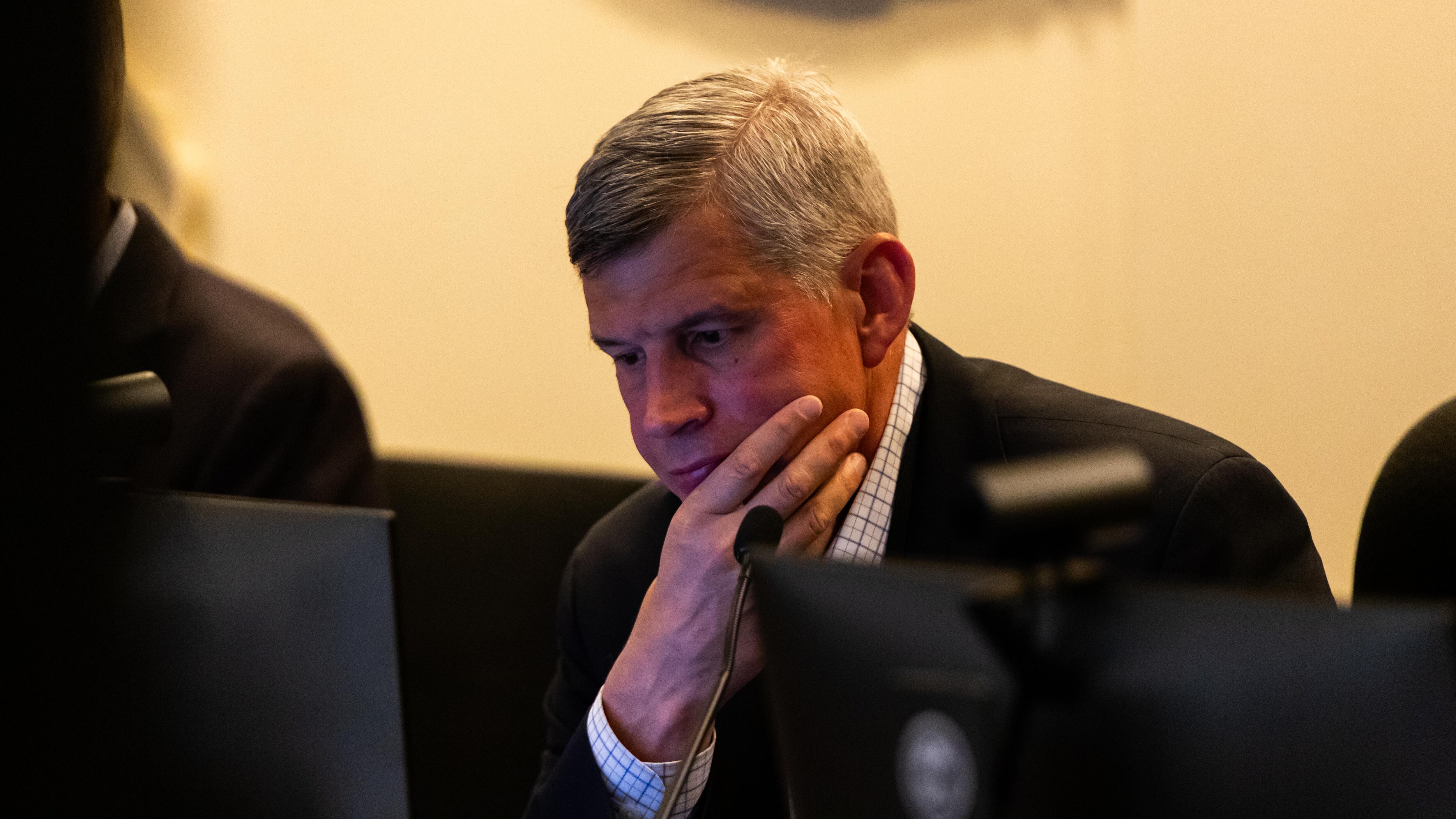For nearly six months, City Commissioner Rene Gonzalez has mulled an idea to repeal and alter the Portland Clean Energy Fund, a tax on businesses that has brought in hundreds of millions of dollars for the city to invest in climate resiliency and jobs training—but which the city has struggled to spend quickly and efficiently.
Gonzalez in recent days has ramped up his efforts to convince his City Council colleagues to support him in referring a measure to the November ballot that would change the tax, perhaps by capping the collections that can be used for climate projects and then allocating the excess revenues to other purposes, like public safety.
In a March 4 email to his council colleagues, Gonzalez wrote: “I think it is time for a deeper conversation as council about the future of PCEF, what is appropriate for council to do and what we might send back to voters. The financial stakes are too significant for the city.”
Gonzalez added that he would like to hold a work session or a session with city attorneys present to discuss options.
City Commissioner Dan Ryan responded to Gonzalez and other council members that same day, voicing his support and writing that the city could “lead among the three local government entities by level-setting PCEF first.”
“I agree that we need to convene and rethink our current PCEF collections,” Ryan wrote. “My message has been consistent for months, I think the big three [PCEF, supportive housing services and Preschool for All taxes] need to right-size the ask of taxpayers based on the miscalculated revenues that are far exceeding projections resulting in government failing to expend what we are receiving for the intended purpose of the targeted revenue.”
What Ryan is alluding to is a different approach than that of Gonzalez, who is leaning toward capping the fund. Ryan is proposing here that a ballot measure lower the rate on PCEF taxpayers, mostly big-box retailers.
PCEF has brought in far more revenue than was originally projected but has struggled to spend the funds swiftly and, in some cases, responsibly. Most egregiously, as The Oregonian reported in 2021, the city pledged $12 million in PCEF funds to a solar company run by a woman who had a history of financial misconduct. The city retrieved the money in light of the findings.
Last fall, City Commissioner Carmen Rubio, who oversees the fund, announced that the tax was projected to garner $540 million more over a five-year period than previously projected. She has begun allocating the excess funds to climate-related projects within city bureaus, a move that drew the ire of nonprofits that championed the ballot measure.
Soon after, Gonzalez tried to get a piece of the Costco-sized PCEF pie: He asked that public safety bureaus—fire and police—get $12 million in annual interest from the tax. Meanwhile, he continued to shop the idea of sending the tax back to voters in November.
In response to Gonzalez’s fast-moving effort, social justice and climate nonprofits have held two meetings in the past week to discuss how to combat the threat posed by Gonzalez and the popularity of the idea with Ryan.
Participants at the meetings, the second of which took place Wednesday morning, include representatives of the Coalition of Communities of Color, APANO, Verde, the Sierra Club, Oregon Walks, Northwest Neighbors for Clean Air, and Oregon Physicians for Social Responsibility.
WW spoke with three people familiar with those meetings.
Members of the roughly formed coalition, most of whom were strong proponents of PCEF in 2018 when it appeared on the ballot, are first trying to assess the severity of the threat—particularly just how much traction Gonzalez is getting with his council colleagues for a ballot referral. They’re discussing, most importantly, how they might lobby the City Council to ensure that Gonzalez won’t get three votes to send it to the ballot.
The loose coalition is also discussing what organized opposition to Gonzalez’s efforts would look like. The three sources declined to divulge particular strategy discussions to WW, but said they’re discussing deploying financial resources to fight Gonzalez’s effort should it get as far as a ballot referral.
That group of nonprofits is also discussing, though to a lesser extent, what they believe to be another threat to the program: Commissioner Rubio’s efforts to invest $540 in excess revenues over a five-year period to climate-related city bureau projects; $382 million of that $540 million has already been recommended by the PCEF Committee for climate-adjacent city programs and now awaits City Council approval, leaving another $158 million yet to be allocated.
Correction: A previous version of this story said the PCEF Committee recently recommended $282 million for climate-adjacent city programs. That’s incorrect; the PCEF Committee recommended $382 million for such programs.

